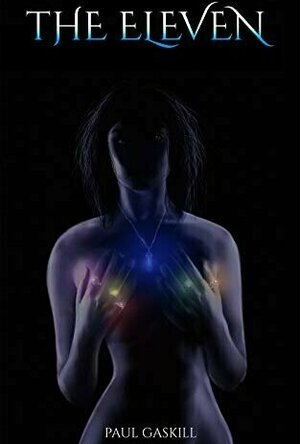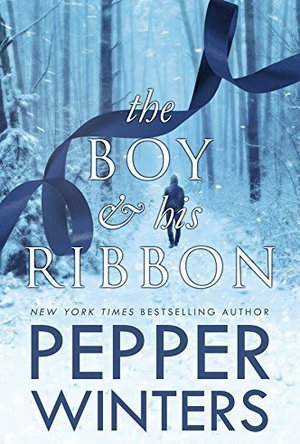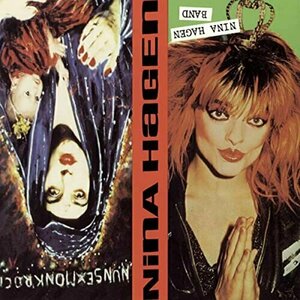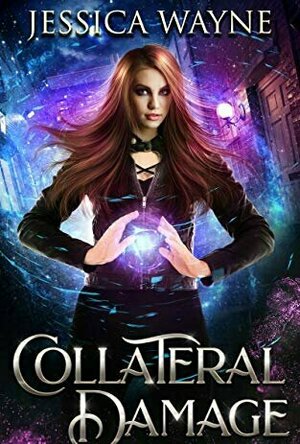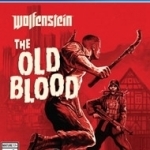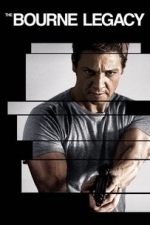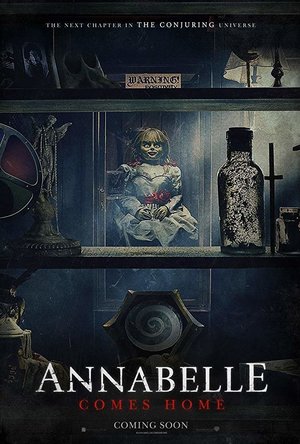Search
Search results
Ross (3284 KP) rated The Eleven in Books
Apr 23, 2020
Fantastic characters and original story
* I received an advance reader copy from the author and netgalley in exchange for an honest review *
Quite simply: this is a fantastic book.
The characters involved are all well-crafted and unique. They have their own back-stories that we learn over time, appreciating who they are, what they have been through and why they are how they are.
The main character is Keira, a human who spent a large part of her late childhood imprisoned, tortured and raped by the upper echelons of the government. She escapes and seeks revenge on her abusers, but needs Courage to achieve this. We first meet her as she begins her attack on the first such abuser.
She teams up with Rowan, an assassin, though the circumstances of their meeting don't become clear until later, and travels to a magical realm to track down more of her tormentors. The details of Rowan's current assignment are somewhat mysterious and only revealed later.
They eventually meet Dess, who we have started to get to know, an elf-like magical scholar who has had his own issues in adolescence and is seeking revenge on the people involved in the murder of the love of his life.
And finally we have Sirris, a funny little slave creature who seeks escape from his life of misery, abuse and servitude.
Those back-stories are gradually woven together over the course of the book in a very ambitious, and flawlessly executed, series of split timelines. Fans of Mark Lawrence's knack for splitting a story into separate timelines will love the way Gaskill has done this and more here. We have the "present" story, told from a number of different viewpoints and places, as well as each of the main characters' backstories. Over time we learn to understand how people met, what tensions there are (or could be lurking under the surface) and what each is trying to achieve. These interactions, conflicts and tensions are masterfully written and revealed.
The action throughout the book is fairly gruesome and gritty, and some of the sexual scenes of torture and rape are a little hard to take. Rather than being gratuitous on the whole though they do serve to give the reader a better appreciation for the terrors the characters have been through.
Over the course of the book we see Keira ticking the names off her list of the eleven, albeit out of sync due to the split timelines.
This really was a wonderful book that got me out of something of a slump, keeping me engaged and guessing the next revelation all the way through.
I sincerely hope Gaskill writes the hinted at follow-up book, as there certainly is scope for it in the world he has masterfully created and the cast of (surviving) characters.
Quite simply: this is a fantastic book.
The characters involved are all well-crafted and unique. They have their own back-stories that we learn over time, appreciating who they are, what they have been through and why they are how they are.
The main character is Keira, a human who spent a large part of her late childhood imprisoned, tortured and raped by the upper echelons of the government. She escapes and seeks revenge on her abusers, but needs Courage to achieve this. We first meet her as she begins her attack on the first such abuser.
She teams up with Rowan, an assassin, though the circumstances of their meeting don't become clear until later, and travels to a magical realm to track down more of her tormentors. The details of Rowan's current assignment are somewhat mysterious and only revealed later.
They eventually meet Dess, who we have started to get to know, an elf-like magical scholar who has had his own issues in adolescence and is seeking revenge on the people involved in the murder of the love of his life.
And finally we have Sirris, a funny little slave creature who seeks escape from his life of misery, abuse and servitude.
Those back-stories are gradually woven together over the course of the book in a very ambitious, and flawlessly executed, series of split timelines. Fans of Mark Lawrence's knack for splitting a story into separate timelines will love the way Gaskill has done this and more here. We have the "present" story, told from a number of different viewpoints and places, as well as each of the main characters' backstories. Over time we learn to understand how people met, what tensions there are (or could be lurking under the surface) and what each is trying to achieve. These interactions, conflicts and tensions are masterfully written and revealed.
The action throughout the book is fairly gruesome and gritty, and some of the sexual scenes of torture and rape are a little hard to take. Rather than being gratuitous on the whole though they do serve to give the reader a better appreciation for the terrors the characters have been through.
Over the course of the book we see Keira ticking the names off her list of the eleven, albeit out of sync due to the split timelines.
This really was a wonderful book that got me out of something of a slump, keeping me engaged and guessing the next revelation all the way through.
I sincerely hope Gaskill writes the hinted at follow-up book, as there certainly is scope for it in the world he has masterfully created and the cast of (surviving) characters.
Alicia S (193 KP) rated The Boy and His Ribbon in Books
Jun 18, 2018
Growing up changes us and sometimes life, and our hearts, have other plans...
Admittedly, I'm a sucker for anything Pepper Winters writes and in the past, she had originally drawn me in with multiple dark romance/suspense series. A Boy and His Ribbon is unlike most of her well-known works, yet similar to Unseen Messages (one of my all-time favorites), as both stories are based on characters living wild. A scenario that speaks to my wanderlust soul and moves me like no other topic. The story follows Ren and Della, two children who escape abuse and a fate worse than even any animal should endure. Growing up alone, fending for themselves, this story takes us through years of this unlikely pair growing up uneducated, unsocialized and learning from each other. And with such fierce love, devotion and determination from children so young... We've all had to deal with the ups and downs of growing up. Imagine facing your teenage years that come with messy feelings and changes, without any guidance or expectations? This Coming of Age/Romance teeters between not quite right and completely understandable. Like every other Pepper Winters title in the past, I devoured this book. It tore my heart out, leaving me in suspense until book 2 in the Ribbon Series, The Girl and Her Ren is released in June.

How to Avoid Being Killed in a Warzone: The Essential Survival Guide for Dangerous Places
Book
Everyone needs this book if they want to know how to get out of difficult situations whether at home...

Daredevils
Book
'An electrifying debut novel that travels some dark roads of American religion and bravado,...
Beth Ditto recommended Nunsexmonkrick by Nina Hagen in Music (curated)
Lyndsey Gollogly (2893 KP) rated Collateral Damage in Books
May 14, 2020
79 of 200
Kindle
Collateral Damage (Tethered book 2)
By Jessica Wayne
Paislee Adams possessed what one man craved: power. After being held captive for fifteen years, she manages to escape and spends the next year of her life pursuing the one who destroyed her. A gunshot heard one night in an alley changes everything, when she comes face to face with Timothy McGinley, a man harboring his own secrets. Ever since a spell left him frozen in time nearly two centuries ago, Timothy has harbored a hatred for all things magic. But when a witch saves his life, he is forced to confront his own mortality for the first time in two hundred years.A man trapped in time.A powerful witch on the run.A dangerous enemy on the hunt.As these two unlikely allies join forces, they have to put aside old grudges in order to stop a man harboring a deadly obsession with them both.
So I was in between 3 and 4 stars for this as I really did enjoy it ! There was a bit more bye to this book than Tethered. Both Timothy and paislee had a bit more character but it was also nice to go back to Aengus and Abby too. A few small inconsistencies but nothing to ruing the book and a lovely nod to Meg Anne who I absolutely love! Another magical romance and if you like romance you will enjoy this!!
Kindle
Collateral Damage (Tethered book 2)
By Jessica Wayne
Paislee Adams possessed what one man craved: power. After being held captive for fifteen years, she manages to escape and spends the next year of her life pursuing the one who destroyed her. A gunshot heard one night in an alley changes everything, when she comes face to face with Timothy McGinley, a man harboring his own secrets. Ever since a spell left him frozen in time nearly two centuries ago, Timothy has harbored a hatred for all things magic. But when a witch saves his life, he is forced to confront his own mortality for the first time in two hundred years.A man trapped in time.A powerful witch on the run.A dangerous enemy on the hunt.As these two unlikely allies join forces, they have to put aside old grudges in order to stop a man harboring a deadly obsession with them both.
So I was in between 3 and 4 stars for this as I really did enjoy it ! There was a bit more bye to this book than Tethered. Both Timothy and paislee had a bit more character but it was also nice to go back to Aengus and Abby too. A few small inconsistencies but nothing to ruing the book and a lovely nod to Meg Anne who I absolutely love! Another magical romance and if you like romance you will enjoy this!!
Gareth von Kallenbach (980 KP) rated the PlayStation 4 version of Wolfenstein: The Old Blood in Video Games
Jun 19, 2019
Wolfenstein: The Old Blood is the latest entry into the long running series which saw its origins back in the days of the Commodore and Apple computers.
Following up last year’s Wolfenstein: The New Order, Old Blood serves as a prequel to the last game but players do not need to own the previous game in order to play.
The game follows series hero William BJ Blazkowicz as he must escape from the deadly Castle Wolfenstein and then recover some secret documents while thwarting the latest Nazi campaign of evil.
Old Blood brings more of the run and gun mayhem that the series has become famous for and does not deviate much from the successful formula of previous games in the series. Players still grab health, ammunition; armor, health, and overcharge all around them and off fallen enemies and the enemies are as nasty and endless as ever.
The game has some serious challenge even on the easier settings at times and players will find themselves with plenty of solid graphics and interesting locales in which to battle. I loved one battle from cable cars and another in a small village was quite thrilling. Enemies are varied from Commanders who can call in support to the standard soldiers and super soldiers who require some up close combat to bring down faster.
The game has a sense of humor as there are rest areas where players can take a break and play levels form the old Wolfenstein 3D with all of its pixelated graphics form the days before 3D cards which shows just how far games have progressed.
The game uses the same weapons from The New Order with the addition of a pipe which is a real universal go to in the game. The pipe can be used as a single piece to club enemies and be used as a pry bar for vents and grates as well as to slide across wires.
When it is used in two parts, the pipe is a great weapon to impale and beat down enemies and is also a valuable climbing tool which will come in handy throughout the game.
Like The New Order, Old Blood does not offer a multiplay feature but it does offer great graphics, a challenge, and plenty of action.
The game has a short run time as I was able to finish it in five hours, but considering the $19.99 price and the fact that the campaign portion of the last few Call of Duty games is roughly the same length you more than get your money’s worth.
Playing on the PC version I did experience two technical issues where the game locked up, but they were minor and did not hinder my completion of the game.
As the game built to a satisfying finale, I was reminded of just how much fun the series is and how we will hopefully see more games in the series in the near future.
For now, Wolfenstein: The Old Blood is a fun game that will keep fans of the series and action games in general happy.
http://sknr.net/2015/05/12/wolfenstein-the-old-blood/
Following up last year’s Wolfenstein: The New Order, Old Blood serves as a prequel to the last game but players do not need to own the previous game in order to play.
The game follows series hero William BJ Blazkowicz as he must escape from the deadly Castle Wolfenstein and then recover some secret documents while thwarting the latest Nazi campaign of evil.
Old Blood brings more of the run and gun mayhem that the series has become famous for and does not deviate much from the successful formula of previous games in the series. Players still grab health, ammunition; armor, health, and overcharge all around them and off fallen enemies and the enemies are as nasty and endless as ever.
The game has some serious challenge even on the easier settings at times and players will find themselves with plenty of solid graphics and interesting locales in which to battle. I loved one battle from cable cars and another in a small village was quite thrilling. Enemies are varied from Commanders who can call in support to the standard soldiers and super soldiers who require some up close combat to bring down faster.
The game has a sense of humor as there are rest areas where players can take a break and play levels form the old Wolfenstein 3D with all of its pixelated graphics form the days before 3D cards which shows just how far games have progressed.
The game uses the same weapons from The New Order with the addition of a pipe which is a real universal go to in the game. The pipe can be used as a single piece to club enemies and be used as a pry bar for vents and grates as well as to slide across wires.
When it is used in two parts, the pipe is a great weapon to impale and beat down enemies and is also a valuable climbing tool which will come in handy throughout the game.
Like The New Order, Old Blood does not offer a multiplay feature but it does offer great graphics, a challenge, and plenty of action.
The game has a short run time as I was able to finish it in five hours, but considering the $19.99 price and the fact that the campaign portion of the last few Call of Duty games is roughly the same length you more than get your money’s worth.
Playing on the PC version I did experience two technical issues where the game locked up, but they were minor and did not hinder my completion of the game.
As the game built to a satisfying finale, I was reminded of just how much fun the series is and how we will hopefully see more games in the series in the near future.
For now, Wolfenstein: The Old Blood is a fun game that will keep fans of the series and action games in general happy.
http://sknr.net/2015/05/12/wolfenstein-the-old-blood/
Gareth von Kallenbach (980 KP) rated The Bourne Legacy (2012) in Movies
Aug 7, 2019
With the franchise torch passing from Matt Damon to Jeremy Renner, “The Bourne Legacy” shows that there is still plenty of life in the franchise.
The events of the film take place during and after the events in The Bourne Ultimatum”and portrays the effects and consequences of the actions taken by Jason Bourne in the first three movies. Now that Bourne has made Treadstone/Blackbriar public and began to seek some measure of justice for lives that were destroyed by the program, the government attempts to cover-up their operations and discredit Bourne and his associate CIA deputy director Pamela Landy who is facing a myriad of charges.
Enter Stacy Keach and Ed Norton who ooze a chilling creepiness as shadowy government figures who will stop at nothing to cover up the growing scandal, including wholesale murder.
Bourne and his program were, in the words of one character, “the tip of the iceberg” and as such, just another program the government ran, which had the same goals of Operation Treadstone but used different methods to create and train their agents, becomes the focus of the film.
Alex Cross (Renner), finds himself the lone survivor of a purge that has eliminated all the living members of his program, this includes the very scientists who helped created the enhanced agents. As a creation who needs special medications to function, Cross races to Washington in an attempt to reach Dr. Marta Shearing (Rachel Weisz), who has been a medical contact for Cross for years. Shearing herself is a survivor of numerous dangers and attempted assassinations, thanks to the timely arrival of Cross.
In an attempt to escape the government manhunt lead by Agent Eric Byer (Edward Norton), As these events are unfolding, the actions of Jason Bourne and Pam Landy in the final moments of ‘The Bourne Ultimatum’ are beginning to unravel which forces Cross and Marta to flee to Manila to get Cross a shot at being able to function at his elite level with the need for medications.
With locales that include the wilderness of Alaska, the alleys of Chicago, America’s east coast, and the streets of Manila, “The Bourne Legacy” breathes new life into the franchise. While the first hour of the film moved at a slow pace and lacked much action, the last thirty minutes kicked into high gear and included a fantastic chase and action sequence through Manila.
Renner does not try to be Bourne, and instead plays Cross as a kind but efficient warrior. We are given some insight into his backstory and motivations for entering the program, and Renner goes all out for a demanding and physical role while earning the audience’s sympathy for the plight of Cross.
Director Tony Gilroy (Who also had a hand in the script), knows the franchise well as he had a hand in writing the previous three films and directed one. It is clear that he is steering the franchise to a very likely fifth film, perhaps one where Renner and Damon will cross paths which would be to the fans’ delight. Should that not happen, the series is in great hands with Renner.
The events of the film take place during and after the events in The Bourne Ultimatum”and portrays the effects and consequences of the actions taken by Jason Bourne in the first three movies. Now that Bourne has made Treadstone/Blackbriar public and began to seek some measure of justice for lives that were destroyed by the program, the government attempts to cover-up their operations and discredit Bourne and his associate CIA deputy director Pamela Landy who is facing a myriad of charges.
Enter Stacy Keach and Ed Norton who ooze a chilling creepiness as shadowy government figures who will stop at nothing to cover up the growing scandal, including wholesale murder.
Bourne and his program were, in the words of one character, “the tip of the iceberg” and as such, just another program the government ran, which had the same goals of Operation Treadstone but used different methods to create and train their agents, becomes the focus of the film.
Alex Cross (Renner), finds himself the lone survivor of a purge that has eliminated all the living members of his program, this includes the very scientists who helped created the enhanced agents. As a creation who needs special medications to function, Cross races to Washington in an attempt to reach Dr. Marta Shearing (Rachel Weisz), who has been a medical contact for Cross for years. Shearing herself is a survivor of numerous dangers and attempted assassinations, thanks to the timely arrival of Cross.
In an attempt to escape the government manhunt lead by Agent Eric Byer (Edward Norton), As these events are unfolding, the actions of Jason Bourne and Pam Landy in the final moments of ‘The Bourne Ultimatum’ are beginning to unravel which forces Cross and Marta to flee to Manila to get Cross a shot at being able to function at his elite level with the need for medications.
With locales that include the wilderness of Alaska, the alleys of Chicago, America’s east coast, and the streets of Manila, “The Bourne Legacy” breathes new life into the franchise. While the first hour of the film moved at a slow pace and lacked much action, the last thirty minutes kicked into high gear and included a fantastic chase and action sequence through Manila.
Renner does not try to be Bourne, and instead plays Cross as a kind but efficient warrior. We are given some insight into his backstory and motivations for entering the program, and Renner goes all out for a demanding and physical role while earning the audience’s sympathy for the plight of Cross.
Director Tony Gilroy (Who also had a hand in the script), knows the franchise well as he had a hand in writing the previous three films and directed one. It is clear that he is steering the franchise to a very likely fifth film, perhaps one where Renner and Damon will cross paths which would be to the fans’ delight. Should that not happen, the series is in great hands with Renner.
Rachel King (13 KP) rated Wither (The Chemical Garden, #1) in Books
Feb 11, 2019
The world that Lauren DeStefano builds in this book combines several dystopian concepts - genetic engineering and reproduction, a virus of epic proportions, anarchy and survival of the fittest. 70 years ago mankind finds a way to make "perfect" babies, and then their babies suffer the consequences - death at 25 for men and 20 for women - with no cure on the horizon. Prostitution, polygamy, human experimentation, wide-scale murder, the prevalence of orphanages, and a country divided on whether mankind is worth saving are all issues in the plot. Plus, all of this takes place after a world war has destroyed all but North America - or so the history goes.
The main character, Rhine Ellery, is forced into a polygamous marriage at the age of 16 to the rich Linden, age 21, along with the flighty 14-year-old Cecily and ex-prostitute, 18-year-old Jenna. Rhine's main goal is escape, but each girl in the marriage has her own motivations and goals. I found their relationships with one another far more interesting than each one's relationship with Linden. Poor Linden lives under the illusions that his aging father feeds him while suffering from the loss of his first love, Rose. While Rhine makes part of her goal to avoid consummating the marriage with Linden, her sister wives have other ideas, but ironically, jealousy among the wives is not the green-eyed monster that I think many would expect. While Cecily is typically self-absorbed and high maintenance, she still wants her sister-wives to bear children, and even Jenna, who hates Linden from the first day, sees no hypocrisy in sharing a bed with him. I also admired Rhine for her extreme patience and endurance with Cecily's immature and naive behavior, though I don't think I would have chosen denial over full disclosure to both Cecily and Linden.
Rhine's secret relationship seems to find it's power in free-formed friendship, without any expectations or requirements. Simply put, Rhine wants her freedom, and she will find it in any form she can grasp. Except for Rhine's memories, almost the entire book takes place on the grounds of Linden's mansion, so I am anxious to see what will happen in the next book in the series, Fever.
The main character, Rhine Ellery, is forced into a polygamous marriage at the age of 16 to the rich Linden, age 21, along with the flighty 14-year-old Cecily and ex-prostitute, 18-year-old Jenna. Rhine's main goal is escape, but each girl in the marriage has her own motivations and goals. I found their relationships with one another far more interesting than each one's relationship with Linden. Poor Linden lives under the illusions that his aging father feeds him while suffering from the loss of his first love, Rose. While Rhine makes part of her goal to avoid consummating the marriage with Linden, her sister wives have other ideas, but ironically, jealousy among the wives is not the green-eyed monster that I think many would expect. While Cecily is typically self-absorbed and high maintenance, she still wants her sister-wives to bear children, and even Jenna, who hates Linden from the first day, sees no hypocrisy in sharing a bed with him. I also admired Rhine for her extreme patience and endurance with Cecily's immature and naive behavior, though I don't think I would have chosen denial over full disclosure to both Cecily and Linden.
Rhine's secret relationship seems to find it's power in free-formed friendship, without any expectations or requirements. Simply put, Rhine wants her freedom, and she will find it in any form she can grasp. Except for Rhine's memories, almost the entire book takes place on the grounds of Linden's mansion, so I am anxious to see what will happen in the next book in the series, Fever.
BackToTheMovies (56 KP) rated Annabelle Comes Home (2019) in Movies
Jul 2, 2019
The third instalment of the Annabelle franchise as Annabelle Comes Home delivers where the previous two did not.
Demonologists Ed Warren (Patrick Wilson) and his wife Lorraine (Vera Farmiga) return back to their home with the cursed Annabelle doll. Safely locked away in their occult museum of the paranormal they leave for another case and leave their babysitter Mary (Madison Iseman) and her best friend Daniela (Katie Sarife) in charge of looking after their daughter Judy (McKenna Grace). One curious friend breaks into the paranormal museum situated in the Warren’s basement and all hell breaks loose.
Annabelle Comes Home is a well-rounded horror. It has a completely different feel than the films previous to it. It has a very goosebumps style goofiness about it with a more sinister tone. The Annabelle doll acts as a beacon for spirits. So when she is unleashed within the museum the other entities contained within that room escape. It really is a Goosebumps style injection of horror as various creatures and entities roam the house.
Whilst these horror movies have cut and paste jump scares and quite predictable outcomes Annabelle Comes Home just about keeps it somewhat fresh. The film is heavily held up high from strong performances by our three lead girls. The film has a lovely dark tone and the detail within the museum is incredible. If you’re a paranormal/haunted object junkie like me just seeing the attention to detail in the set dressing was impressive indeed.
Director Gary Dauberman takes Annabelle out of the one trick pony setting and allows this freedom of entities to run amok without convoluting the plot in any way shape or form. Each item is linked to a spirit and they’re carefully injected at spaced intervals through the story.
There’s nothing really new on display here. Horror movies just aren’t scary anymore. They rely on jump scares to provide a ‘scare’ which is actually a fabricated effect. A jump scare will never make a movie scary. I wish filmmakers wouldn’t over-saturated jumps every 10 minutes to make something ‘scary’. This movie isn’t bad whatsoever but my god is the horror genre becoming a little repetitive and boring in some aspects. It’s time to spice things up without pushing agendas! Yes, I’m talking to you Jordan Peele.
Demonologists Ed Warren (Patrick Wilson) and his wife Lorraine (Vera Farmiga) return back to their home with the cursed Annabelle doll. Safely locked away in their occult museum of the paranormal they leave for another case and leave their babysitter Mary (Madison Iseman) and her best friend Daniela (Katie Sarife) in charge of looking after their daughter Judy (McKenna Grace). One curious friend breaks into the paranormal museum situated in the Warren’s basement and all hell breaks loose.
Annabelle Comes Home is a well-rounded horror. It has a completely different feel than the films previous to it. It has a very goosebumps style goofiness about it with a more sinister tone. The Annabelle doll acts as a beacon for spirits. So when she is unleashed within the museum the other entities contained within that room escape. It really is a Goosebumps style injection of horror as various creatures and entities roam the house.
Whilst these horror movies have cut and paste jump scares and quite predictable outcomes Annabelle Comes Home just about keeps it somewhat fresh. The film is heavily held up high from strong performances by our three lead girls. The film has a lovely dark tone and the detail within the museum is incredible. If you’re a paranormal/haunted object junkie like me just seeing the attention to detail in the set dressing was impressive indeed.
Director Gary Dauberman takes Annabelle out of the one trick pony setting and allows this freedom of entities to run amok without convoluting the plot in any way shape or form. Each item is linked to a spirit and they’re carefully injected at spaced intervals through the story.
There’s nothing really new on display here. Horror movies just aren’t scary anymore. They rely on jump scares to provide a ‘scare’ which is actually a fabricated effect. A jump scare will never make a movie scary. I wish filmmakers wouldn’t over-saturated jumps every 10 minutes to make something ‘scary’. This movie isn’t bad whatsoever but my god is the horror genre becoming a little repetitive and boring in some aspects. It’s time to spice things up without pushing agendas! Yes, I’m talking to you Jordan Peele.
